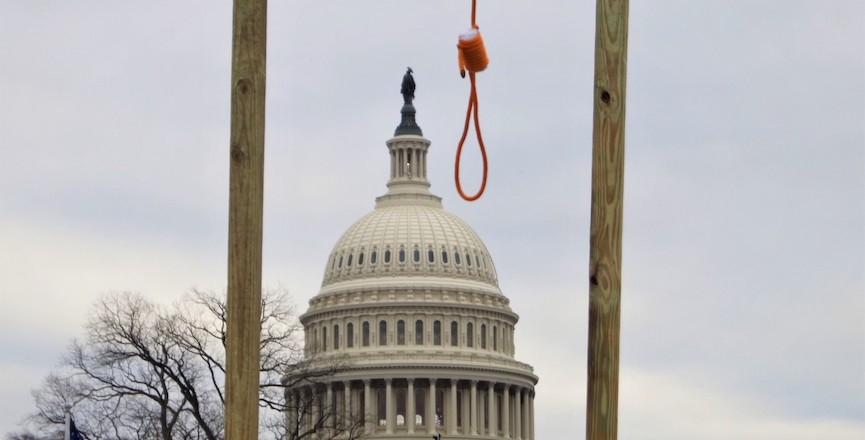Anti-hate groups, campaign workers, and the RCMP have said this past election was the ugliest campaign in recent memory. Candidates endured racist, misogynistic, and anti-Semitic slurs. Their signs and offices were vandalized. A PPC member threw rocks at the prime minister and his staff. Some campaign stops had to be cancelled due to security risks.
While Canada struggled with its own violent election woes, events south of the border brought a painful reminder of what can happen when political acrimony goes too far. This past weekend, hundreds of Trump supporters gathered in Washington, D.C. for the “Justice for J6” rally — an event protesting the criminal charges laid against those who attempted to violently interfere with the certification of the 2020 presidential election results on January 6.
A few days prior, Trump issued a statement in support of the rally saying, “Our hearts and minds are with the people being persecuted so unfairly relating to the January 6th protest concerning the Rigged Presidential Election (sic).” This baseless claim of a fraudulent election motivated the crimes of January 6th and has since remained a fixture of GOP rhetoric.
Republicans continue to insist that the election of Joe Biden was illegitimate and that those who infiltrated the Capitol building were nonviolent protestors, peacefully engaged in an act of political expression. “There was no insurrection and to call it an insurrection, in my opinion, is a bold-faced lie,” Republican Representative Andrew Clyde of Georgia told a House Oversight Committee. “If you didn’t know that TV footage was a video from January the sixth, you would actually think it was a normal tourist visit.”
These outlandish claims have successfully shaped right-wing public opinion. A recent poll revealed that nearly 80 per cent of Republicans believe that the election was fraudulent.
Things never went that far in Canada. PPC leader Maxime Bernier alleged voter fraud on Twitter early in the campaign, and some conspiracy theories are circulating among PPC and extremists online. Still, a version of the “Big Lie” has yet to infiltrate Canadian politics in any meaningful way. The key word is “yet.”
January 6th is nevertheless a powerful cautionary tale. If nothing else, it reminds us of the fragility of our political culture. Democratic norms are only as strong as our willingness to enforce them. When we allow misinformation, violence, and terror to seep into our politics, we risk surrendering to them altogether.
We are starting to feel the tremors of a shifting political climate here at home; one in which lies and conspiracy theories radicalize the discontented and sew distrust in our political institutions and processes. How long before those targeting campaign stops decide instead to terrorize polling places? The House of Commons?
This may once have sounded like fear-mongering, but then January 6th happened.
Eight months ago, we watched the truth of Voltaire’s warning that “those who can make you believe absurdities can make you commit atrocities” unfold in real time. We must never forget it.
Shira Lurie a historian of American politics at Saint Mary’s University and has written opinion pieces for the Toronto Star and the Washington Post.



